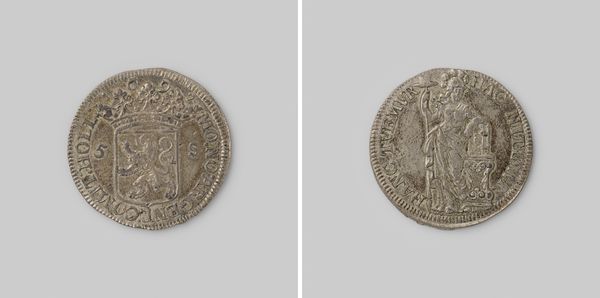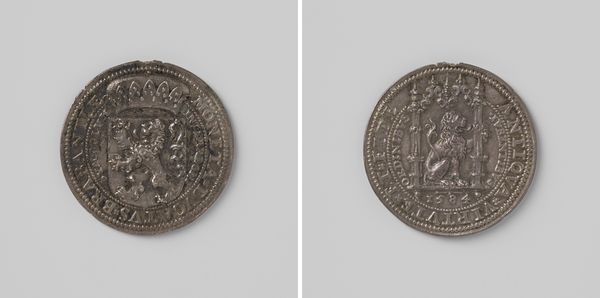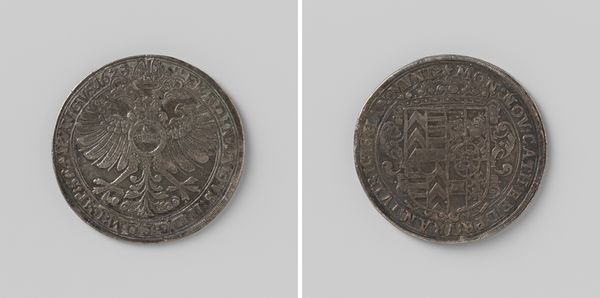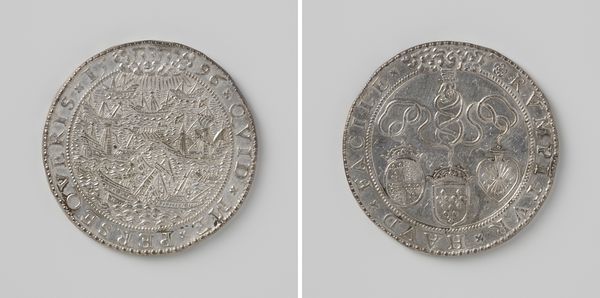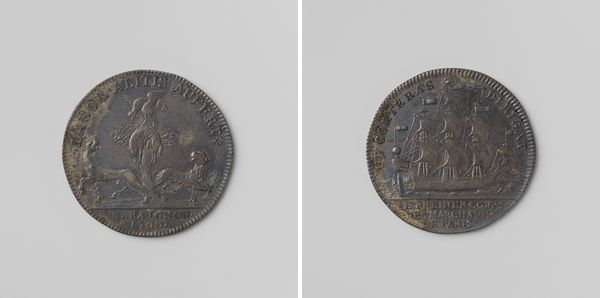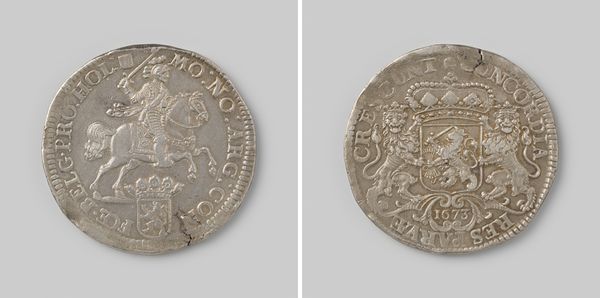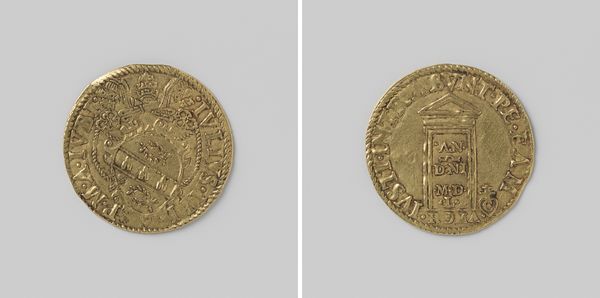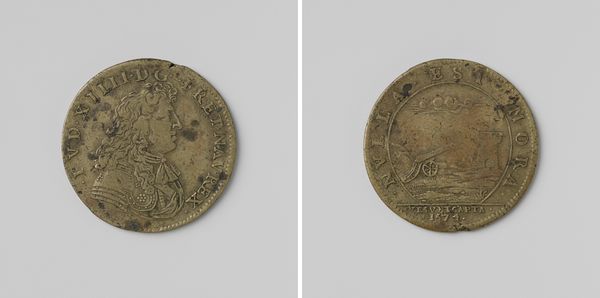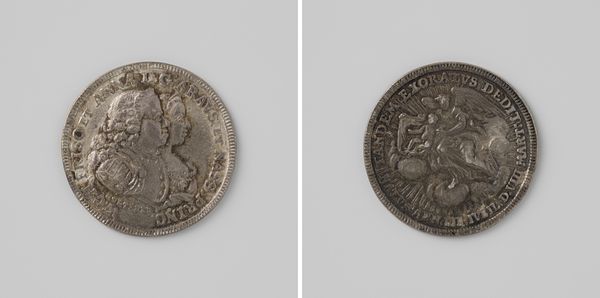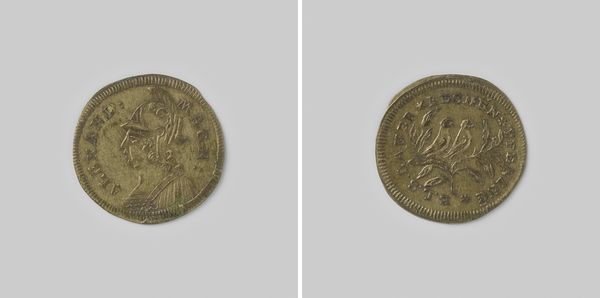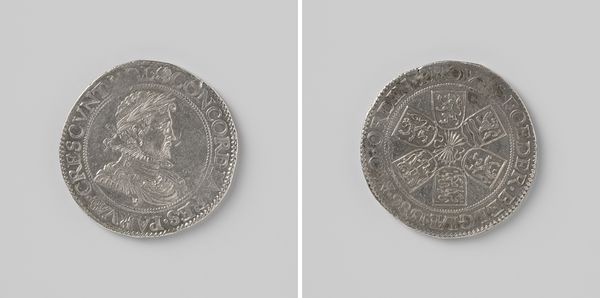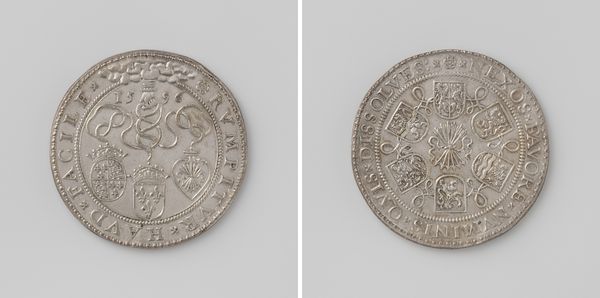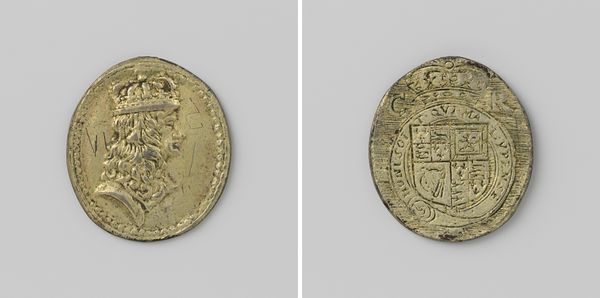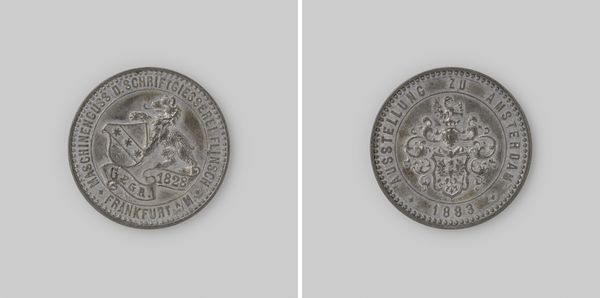
carving, print, metal, relief, engraving
#
carving
# print
#
metal
#
relief
#
11_renaissance
#
engraving
Dimensions: diameter 2.8 cm, weight 4.65 gr
Copyright: Rijks Museum: Open Domain
This Nuremberg jeton depicts Vulcanus, the Roman god of fire, craftsmanship, and metalworking. The scene is a snapshot from the forge of the gods, a place of creation and fiery transformation. This isn't just a scene of labor; it’s a symbolic representation of the alchemical processes, of transforming base materials into the sublime. Consider how Vulcanus, often depicted with tools and fire, echoes the Egyptian god Ptah or the Greek Hephaestus. Across cultures, the figure of the divine smith resonates with themes of innovation and control over natural forces. This image invites contemplation on humanity’s enduring quest to shape and master our environment. There is an emotional power in the depiction of the forge. The image of a single craftsman resonates with the desire for transformation and innovation.
Comments
No comments
Be the first to comment and join the conversation on the ultimate creative platform.
